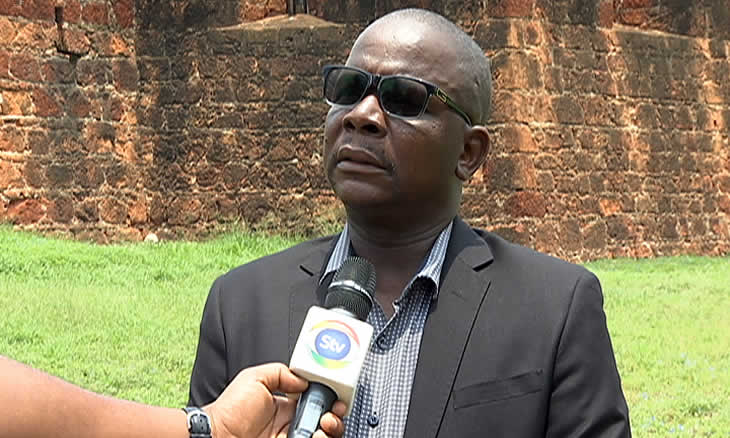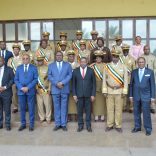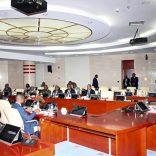Zimbabwe begins inventory of historical sites in Mozambique
Elias Dhlakama condemns attacks in central Mozambique, advocates peace in face of electoral disputes – Mozambique

Photo: O País
Elias Dhlakama, a member of the Mozambican National Resistance (Renamo) National Council, the main opposition party, today disowned the armed attacks in the centre of the country and advocated a peaceful solution to electoral disputes.
“No one is interested in waging war, despite the astounding vote theft in Mozambique,” Elias, the brother of renowned Renamo leader Afonso Dhlakama, told Lusa.
Regarding the complaints of fraud concerning the October 15 general and provincial elections, he said that “party organs will have to make a decision”, but this should not involve “firing weapons”.
Elias Dhlakama similarly repudiates the acts of guerrilla groups made up of dissidents from the party’s armed wing, suspected of leading the attacks in Manica and Sofala provinces which have killed 10 since August.
Mozambican police announced on Wednesday the arrest of six men supposedly trying to recruit men to expand the attack zone to Zambezia province.
The detainees said they were ordered by Mariano Nhongo, the Renamo military leader who rebelled in June and formed the party’s self-proclaimed “Military Junta”, claiming that he had the support of leaders unhappy with Ossufo Momade’s leadership and naming Elias Dhlakama as one of them.
“I distance myself from these men and their statements,” Elias told Lusa today, considering that “they may have been instrumentalised” to make certain statements, as a reflection of manoeuvres aimed at destabilising the opposition party.
“Everything I do is with party knowledge. I see no need to back such actions and to go around shooting on the road. To accomplish what? To solve what?” he asks.
Elias Dhlakama was the second most-popular candidate when Ossufo Momade was elected president at the party’s congress in January and today declares himself as a member “wearing the party’s colour” as he did in the election campaign, having been elected a deputy for Sofala.
“At this moment there is no reason for conflict. It solves nothing,” he said, adding that armed violence did nothing but “destroy the country”, and recommending dialogue as an alternative to armed violence.
Attacks by armed groups in the centre of the country in the provinces of Manica and Sofala have already killed 10 people since August. An unknown number of dissident Renamo guerrillas continue to threaten to resort to armed violence if their claims concerning their reintegration into society and in the defence and security forces are not heard.
Renamo president Ossufo Momade has distanced himself from this violence, saying that armed men under the party’s command remain cantoned under the demilitarisation, disarmament and reintegration (DDR) process, in line with the peace agreement he signed with the Mozambican president, Filipe Nyusi, on August 6.
Attacks on vehicles and other targets in the centre of the country are not unheard of. The same type of violence occurred in 2015 following the 2014 elections, when former Renamo leader Afonso Dhlakama refused to accept the Frelimo victory, while denying involvement in the clashes.
Politically, this year’s elections strengthened the power of the Mozambique Liberation Front (Frelimo) in the provinces and in parliament, as it did for Filipe Nyusi, who won his second presidential term.
Having contested the election results, alleging fraud, Renamo is awaiting the Constitutional Council ruling on the results before it calls its bodies to assemble.












Leave a Reply
Be the First to Comment!
You must be logged in to post a comment.
You must be logged in to post a comment.